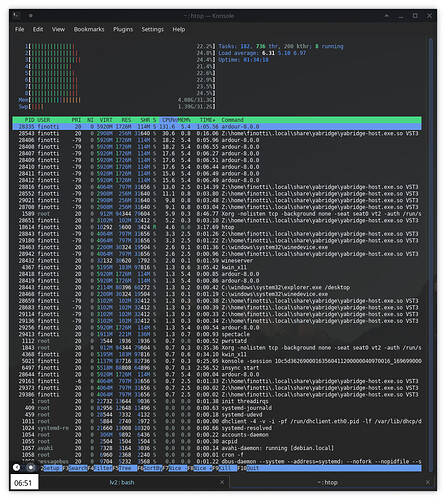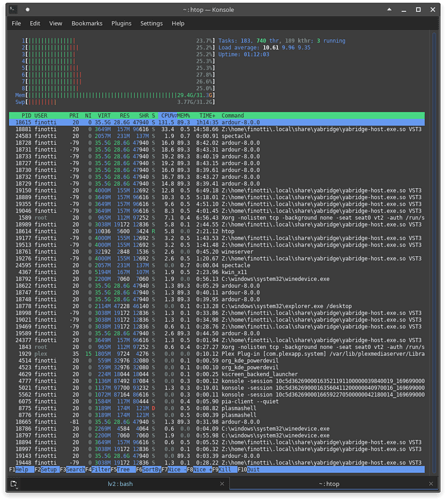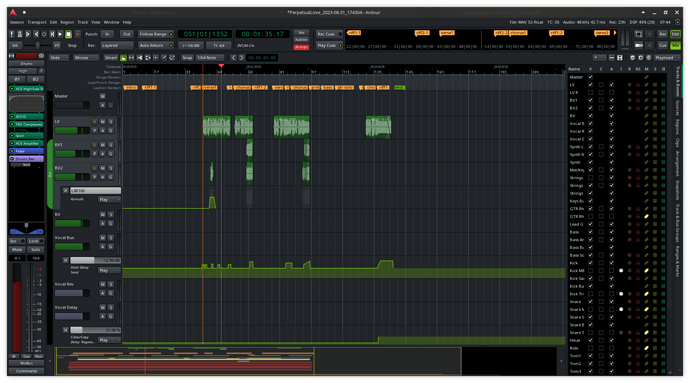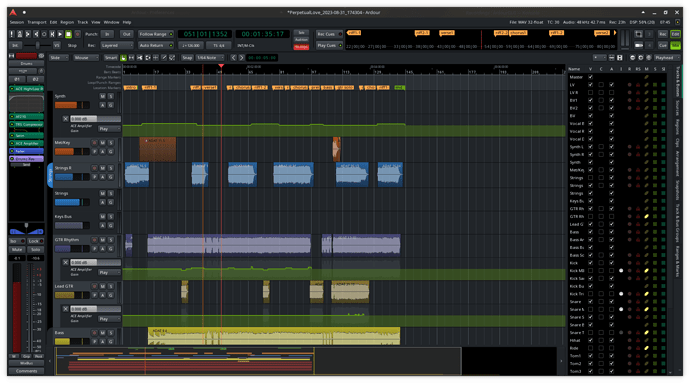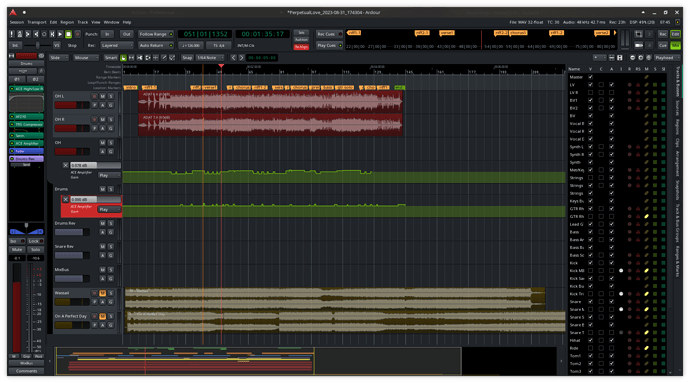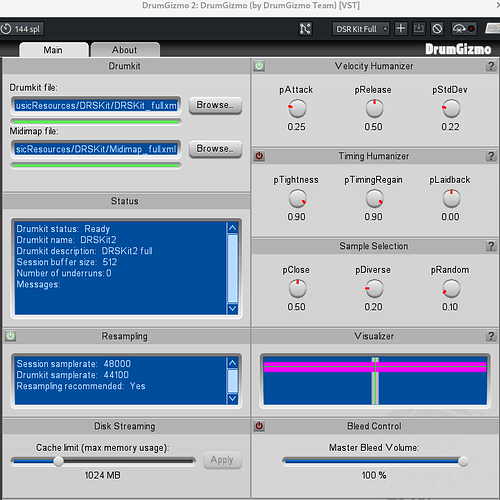I’ve just updated to 8.0. (Thanks to all developers! The list of new features is quite appealing!)
In my current project (which is not very large), Ardour started to get slow and slowing down the whole computer. (Comparable sessions ran just fine with versions 7.5 and earlier.) It was working just fine for a while, but it then started to slow down. I would press play (space bar) and have to wait a couple of seconds to start playing. Even adding the ACE Amplifier plugin to track would take a few seconds. I noticed that the DSP was not too high, so I don’t think it was the problem.
I tried to reboot the computer to see if it would fix. It took over 2 minutes for Ardour to just quit. (It was using over 84% of the 32GB of memory of the system.) But, the problem persisted after the reboot. (Again, even quitting took a couple of minutes.)
Note that I was running some Windows plugins (IK multimedia) with yabridge, but it never caused anything like this before. I have not updated yabridge or wine recently.
I am running Debian Sid with a Focusrite 2i2 (2nd gen). Now, the computer is old (Intel Core i7-4771, 32GB of memory, Radeon HD 7750):
$ inxi -v3
System:
Host: debian Kernel: 6.5.0-6.slh.1-aptosid-amd64 arch: x86_64 bits: 64 compiler: gcc v: 13.2.0
Console: pty pts/24 Distro: aptosid 2013-01 - kde-full - (201305050307) base: Debian GNU/Linux
trixie/sid
Machine:
Type: Desktop System: ASUS product: All Series v: N/A serial: <superuser required>
Mobo: ASUSTeK model: Z87-PRO v: Rev 1.xx serial: <superuser required>
UEFI: American Megatrends v: 2103 date: 08/18/2014
CPU:
Info: quad core model: Intel Core i7-4771 bits: 64 type: MT MCP arch: Haswell rev: 3 cache:
L1: 256 KiB L2: 1024 KiB L3: 8 MiB
Speed (MHz): avg: 3753 high: 3789 min/max: 800/3900 cores: 1: 3789 2: 3756 3: 3698 4: 3752
5: 3738 6: 3759 7: 3758 8: 3774 bogomips: 55970
Flags: avx avx2 ht lm nx pae sse sse2 sse3 sse4_1 sse4_2 ssse3 vmx
Graphics:
Device-1: AMD Cape Verde PRO [Radeon HD 7750/8740 / R7 250E] vendor: VISIONTEK driver: amdgpu
v: kernel arch: GCN-1 bus-ID: 01:00.0 temp: 47.0 C
Device-2: Logitech Webcam C270 driver: snd-usb-audio,uvcvideo type: USB bus-ID: 3-6:5
Display: server: X.org v: 1.21.1.8 with: Xwayland v: 23.2.1 driver: X: loaded: amdgpu
dri: radeonsi gpu: amdgpu tty: 156x74 resolution: 1: 1920x1080 2: 1920x1080
API: EGL v: 1.5 drivers: kms_swrast,radeonsi,swrast platforms: active: gbm,surfaceless,device
inactive: wayland,x11
Network:
Device-1: Intel Ethernet I217-V vendor: ASUSTeK driver: e1000e v: kernel port: f040
bus-ID: 00:19.0
IF: eth0 state: up speed: 100 Mbps duplex: full mac: e0:3f:49:a3:4c:a6
Drives:
Local Storage: total: 13.88 TiB used: 7.27 TiB (52.4%)
Info:
Processes: 398 Uptime: 7h 54m Memory: total: 32 GiB available: 31.3 GiB used: 8.92 GiB (28.5%)
Init: systemd target: graphical (5) Compilers: gcc: 13.2.0 Packages: 7637 Shell: Bash v: 5.2.15
inxi: 3.3.30
Is it just too old to handle it? If not, would running GDB help finding what is slowing it down? Any suggestions on what to do to find the problem? (I’d be glad to file a bug report, if that is the case. I am just not sure if it is something on my end.)
